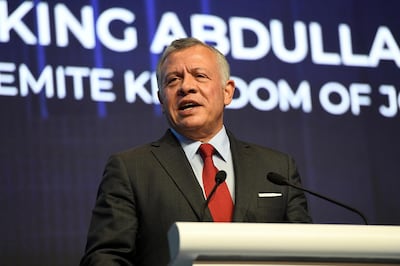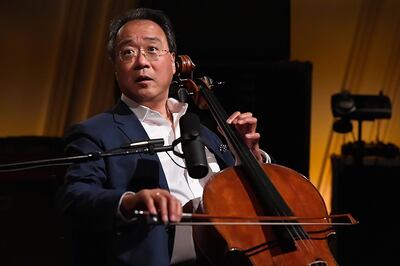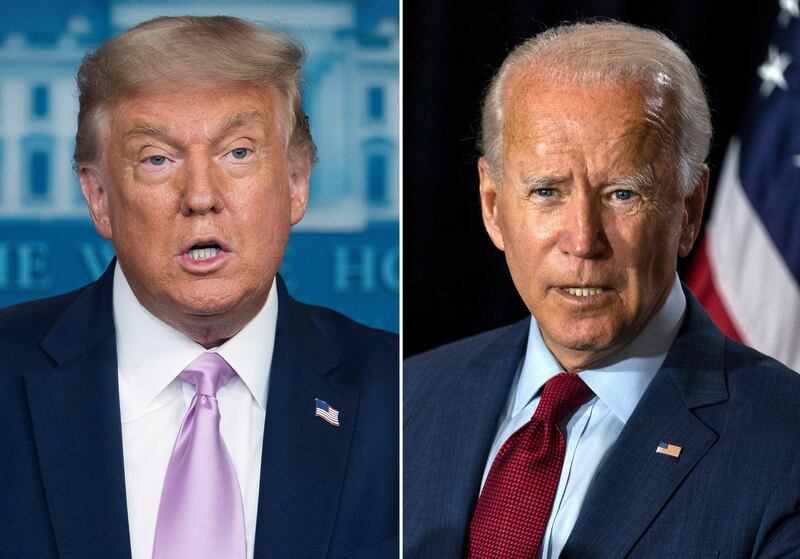This week, we got a glimpse of what the post-pandemic language of politics could sound like at the fourth World Economic Forum Sustainable Development Impact Summit. The online meeting of about 3,800 people from government, business and civil society, from more than 140 countries, was an example of the centre of the spectrum at a time when politics is starkly polarised across the world.
There is an urgency to find common ground among nations, organisations and corporations. Achim Steiner of the United Nations Development Programme warned the summit that the Covid-19 pandemic has not really changed the future yet "but it has very much revealed the present" and the stark problems we face.
As the forum heard, the economic fallout from the pandemic risks plunging half a billion more people into extreme poverty. It would be the first time that poverty has increased globally in three decades and would nearly double the 700 million people already living below the World Bank-defined threshold of $1.90 a day, the forum said.

To meet this challenge and others, such as the climate crisis, economic inequality and the risks of rapidly developing technology, will require the kind of collective effort – with all of the compromises it would entail – that has been shunned in the past decade as populism and nationalism have re-emerged to challenge the paradigm that globalisation was a largely beneficial trend.
Jordan’s King Abdullah perhaps put it best at the opening of the summit.
“The way forward must be rooted in a re-globalisation that fortifies the building blocks of our international community by enabling our countries to strike a balance between self-reliance and positive interdependence, enabling us all to jointly mark a holistic response to all crises facing our world,” he said. “A response that strengthens our global economy but also addresses inequalities. A response that leads to technological and industrial progress but also ensures the sustainability of our shared environment.”
These are words that encourage inclusion while recognising that countries will always put self-interest first. We cannot be naive about that point, and rather we should see it as a strength to be harnessed. The pandemic is showing us once again that no nation can expect to remain immune to the problems that occur beyond their geographic or ideological boundaries.
Similarly, the issues created by the growing digitalisation of societies cannot be dealt with unless there is a co-operative approach. Fabrizio Hochschild, UN Under-Secretary General, conceded to the forum that few had anticipated that digital innovations such as social media platforms “would leave us more polarised or undermine our democracy". These are unintended consequences, he said, and countries are trying to catch up. "Technologies don’t recognise borders," he added.
However, now that we are aware of these risks, we cannot continue to accept them. "The tech sector is pushing forward the 21st century, but has 19th-century values," he said. "My plea is let’s be more conscious of what we’re doing for society, increasing polarisation or decreasing it, increasing equality or decreasing it."
Equally, other problems are also a matter of mindset. Alan Jope, chief executive of Unilever, said that measures of success remain solely financial, which is “bizarre and it's outdated”. He added that “21st-century tools for a 21st-century environment” are needed.
“The definition of success for a country, which is usually GDP, and all our traditional financial metrics are built on environmental degradation and growing inequality,” he pointed out.
Of course, the hard part will be delivering on these words. In the meantime, we need to ensure that more people hear them. The antidote to divisive and confrontational politics is to deliver the message that compromise is a matter of survival and self-interest, which is the most powerful force for change.

People may not be ready to hear that yet. We may not hit bottom until well after next month's US presidential election. The discourse will only become uglier in the next few weeks and months as long-standing issues of race and inequality in America have their reckoning.
At some point, though, as we see more evidence of how a collaborative approach will ease our suffering – such as with the multinational initiatives to find a vaccine for the coronavirus – an appetite for a discussion that is more conciliatory could begin to emerge.
On the ground in many parts of the world, people are taking this approach. As cellist Yo-Yo Ma told social innovators being recognised by the Schwab Foundation during the summit: "You have improved the lives of people around you in the world because you care. When people are hurt, you hurt. You care because you have been able to listen to what the needs are of people."
The hope that we can have a world that is more caring and equitable is clearly in evidence even if on most days it doesn’t sound like it is. Perhaps soon we will begin to hear more about that hope above the noise and tumult.
Mustafa Alrawi is an assistant editor-in-chief at The National






